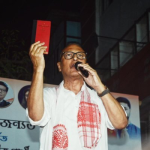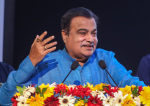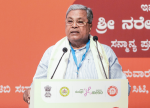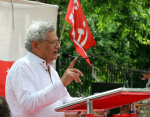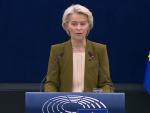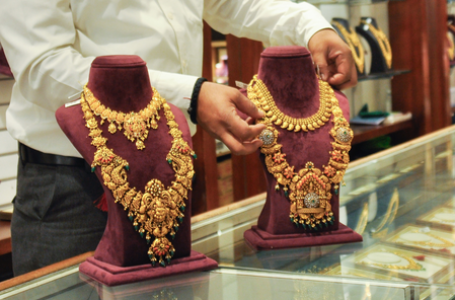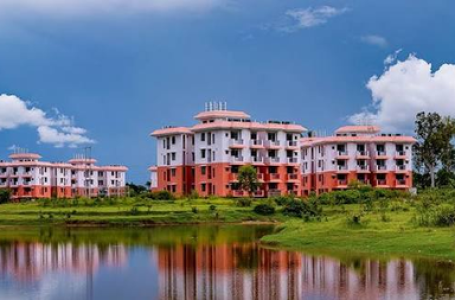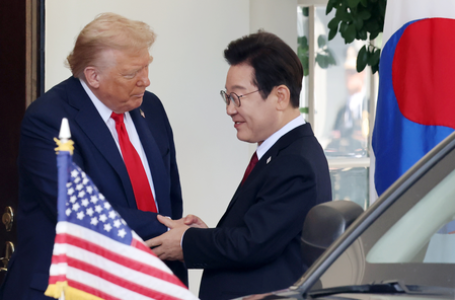The peril of power is often the verdict of history. Even the most famous can be felled by the judgement of their biographers. That’s certainly one of the outcomes of Sagarika Ghose’s biography of Atal Bihari Vajpayee. No doubt there’s praise and adulation but what stands out is the criticism.
“There was little that was straight about Vajpayee”, Ghose writes. “One day a moderate, the next day sounding like a hardliner, one day arguing for pluralism, the next day harking to hindu sentiments.”
She suggests ambition made Vajpayee an opportunist. “He knew … when to be visible and when not to be, and how to stand out as the Hindutva dove amongst the hawks.” He was, therefore, “Vajpayee the supreme tactician, Vajpayee the ruthless politician with an unerring instinct about which way the mood was swinging and what the ‘mahaul’ was.” Ghose adds Vajpayee was the master of equivocation but you don’t get the feeling this is written with admiration. “In ambiguity and double-speak lay Vajpayee’s claim to liberalness.”
When the Ram Mandir campaign was gathering momentum she calls him “the disingenuous artist of double-speak”. Though a critic, “Vajpayee was canny enough to realize the direction of the wind within his party.” So he played it both ways. On the one hand, “he would make an incendiary speech or two” but on the other “a wily sixth sense told him to stay away when the fire truly began to burn”.
Of his speech on 5th December 1992, the night before the masjid fell, when he played semantic tricks with the Supreme Court’s ruling against kar seva, she writes “it was … replete with double meanings, hidden layers and sneaky allusions.”
However, it’s when Ghose writes about Vajpayee’s response as prime minister to the Gujarat massacre of 2002 that her verdict is most damning – but perhaps most truthful too. “Vajapyee made double-edged statements” she begins. “He declared that the events in Gujarat had brought shame to the entire nation but also castigated the media for showing ‘exaggerated’ images of the carnage and for misquoting him.”
She writes Vajpayee wanted Narendra Modi’s resignation but when the Party’s mood was against it he caved in. Then, “in an astonishing volte face”, he made a speech blaming muslims for what had happened.
This was the lowest point in Vajpayee’s premiership, both politically and morally. “On the Gujarat riots he never took a clear or hard stand”, Ghose comments. “Appallingly, on Gujarat, the Vajpayee the calculating politician prevailed over Vajpayee the constitutional moralist.”
Of the remaining two years of his term Ghose says “he was too weak, too fixated on staying in power and by now too ill and tired to openly challenge Modi or stop his party’s turn once again towards destructive Hindutva.” In other words, he did not like the direction the Party was heading in but rather than oppose found a convenient way to quietly accept.
This is clearly not how Vajpayee’s party remembers him and it will be disillusioning for many of his admirers who loved the man whilst not fully understanding the politician. Ghose suggests the politician determined what sort of man Vajpayee was. It seems that also defined his character.
If this is her conclusion – and it’s hard to believe it’s not – it conveys both a lacerating critique but also a tiny element of respect: “All through his life, Vajpayee … lacked the strength of character to act against wrong but still had the sensitivity to be ashamed about his own failings.”
Now, if Ghose is right does it mean Vajpayee couldn’t have been happy with himself? When you know you’re erring but can’t stop yourself you’re torn between two sides of your personality. In Vajpayee’s case that was his conscience and his ambition. But I doubt if that troubled him.
I suspect a different truth applies to men and women who rise to the top. Ambition pushes aside moral concerns. If you achieve success the shortcuts that made it possible rarely matter.



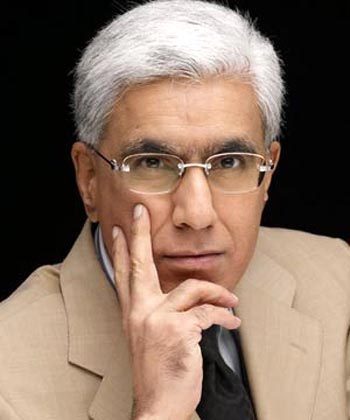 by Karan Thapar
by Karan Thapar

